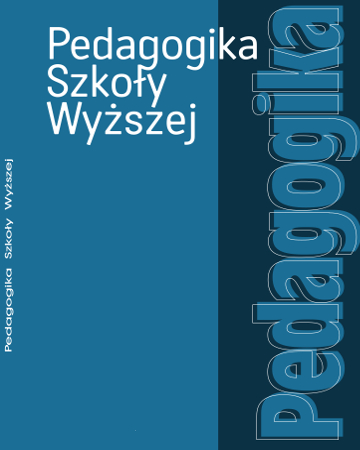
ISSN: 2083-4381
OAI
DOI: 10.18276/psw.2018.2-03


Issue archive /
2/2018 (24)
What Does Autonomy in Universities Look Like?
| Authors: |
Julian
Stern
York St John University |
| Keywords: | autonomy exonomy care curiosity community Buber Macmurray Noddings research teaching |
| Data publikacji całości: | 2019 |
| Page range: | 7 (33-39) |
Abstract
A university is a learning community, dedicated to learning at ‘higher’ levels. It is from this simple and –
I think – uncontentious description of universities that I build my argument for the autonomy of universities,
for what autonomy looks like in universities (somewhat in contrast to official descriptions, as at
https://www.university-autonomy.eu/), and for what universities would look like if they were exonomous.
After describing the rather dangerous term ‘autonomy’, I will go on to explain why and how autonomy is
important. Autonomy – infused with care, curiosity and community – is equally relevant to the two activities
that dominate universities: teaching-learning and research. My conclusion is rather simple, like my
initial description of universities as learning communities. When those in universities focus primarily
on learning alone (they focus on just learning), and when the ways in which they do that is personal and
therefore congruent with justice (they focus on just learning), universities will be enabled to demonstrate
a significant degree of autonomy.
Download file
Article file
Bibliography
| 1. | Barnett, R. (ed.) (2005). Reshaping the University: New Relationships Between Research, Scholarship and |
| 2. | Teaching. Maidenhead, Berkshire: Open University Press. |
| 3. | Buber, M. (2002 [1965]). Between Man and Man. London: Routledge. |
| 4. | Defoe, D. (2001 [1719]). Robinson Crusoe. London: Penguin. |
| 5. | Grenberg, J. (2005). Kant and the Ethics of Humility: A Story of Dependence, Corruption, and Virtue. Cambridge: |
| 6. | Cambridge University Press. |
| 7. | Home Office (2011). Prevent Strategy. Norwich: TSO. |
| 8. | Macmurray, J. (1991 [1961]). Persons in Relation: Volume 2 of The Form of the Personal. London: Faber. |
| 9. | Marx, K. (1973 [1858]). Grundrisse: Foundations of the Critique of Political Economy (Rough Draft). Harmondsworth: |
| 10. | Penguin. |
| 11. | Mitscherlich, A., Mielke, F. (1949). Doctors of Infamy: The Story of the Nazi Medical Crimes. New York: |
| 12. | Henry Schuman. |
| 13. | Noddings, N. (2012). The Caring Relation in Teaching. Oxford Review of Education, 38 (6), 771–781. |
| 14. | DOI: 10.1080/03054985.2012.745047. |
| 15. | Noddings, N. (2016). Philosophy of Education: Fourth Edition. Boulder, Colorado: Westview Press. |
| 16. | Sennett, R. (2003). Respect in a World of Inequality. London: Norton. |
| 17. | Stern, L.J. (2014). Dialogues of Space, Time and Practice: Supporting Research in Higher Education. |
| 18. | Other Education: The Journal of Educational Alternatives, 3 (2), 3–21. |
| 19. | Stern, L.J. (2016). Virtuous Educational Research: Conversations on Ethical Practice. Oxford: Peter Lang. |
| 20. | Stern, L.J. (2018). A Philosophy of Schooling: Care and Curiosity in Community. London: Palgrave. |